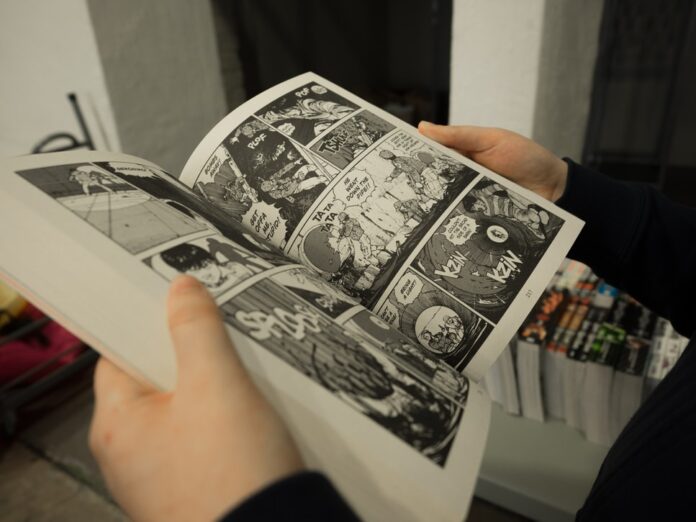
So, getting to draw the likes of Batman or Spider-Man would be a dream come true for you? Or, perhaps, you have a wild enough imagination to create your own characters and stories?
Whichever direction you’d prefer, chances are, you’ve been discouraged to pursue it. Your parents might have told you, “It’s just a pipe dream, you’re not going to make it.” They might have also convinced you to get a “prestigious” degree instead of following your passion.
But if it’s truly your calling, working in any other field will be boring or miserable. If you’re a creative type stuck in a computer sciences graduate program, you’ll find yourself having paper writers help you constantly. The WritePaper service can help you to find a professional paper writer to help you with your assignments. Not because you’re lazy or irresponsible or not smart enough – it’s just not your thing.
So, how do you make it in the comic book industry? Here are 7 starter tips for you, the aspiring artist.
1. Consider Getting a Degree

Yes, it’s not 100% mandatory to have a Bachelor of Arts degree to find gigs. But, it’s not 100% useless either.
The thing is, going to college is great for developing the right skill set and building a portfolio. After all, you’ll have someone to give feedback on your works and you’ll have no choice other than practice, practice, practice.
On the other hand, if obtaining a degree isn’t an option for you, don’t get all too frustrated. Just make sure you:
- Are rigorous about developing your skills
- Have a one-of-a-kind portfolio that speaks volumes
2. Never Stop Working on Your Skillset
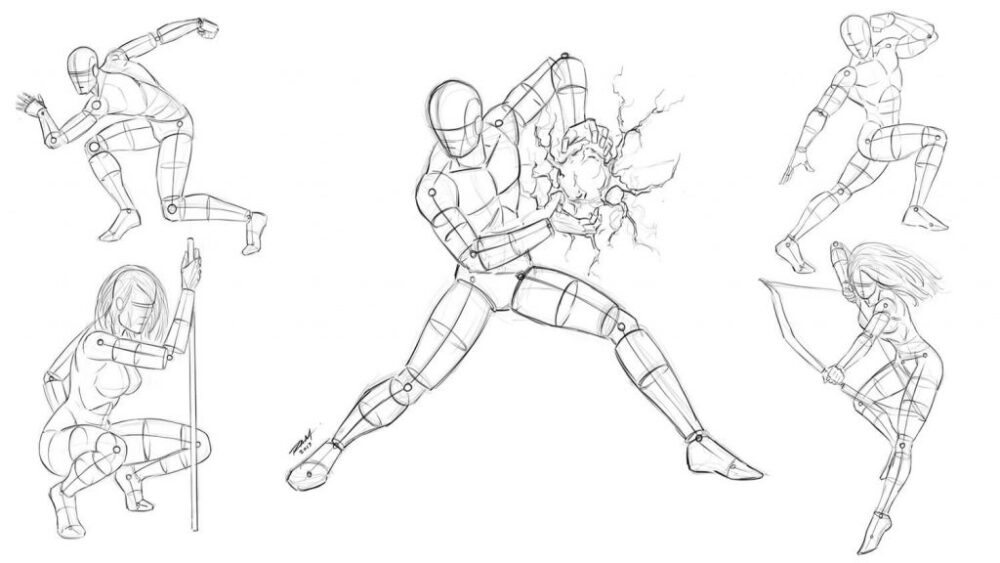
If you have a gap in your learning, it will bring down the quality of your work. So, practice every single day.
Here are the very basics you’ll have to master before you try applying anywhere:
- Anatomy and figure drawing;
- Perspective and light;
- Texture and environment;
- Inking and coloring;
- Lettering;
- Storytelling.
Beyond that, you’ll also need to be able to draw not just well, but consistently well.
Apart from these job-specific skills, give some thought to your soft skills, too. These three are the most essential ones:
-
Time management
In reality, this job means working long hours (Matt Haley has a 12-hour workday, for example), with few or no days off.
-
Multitasking & adaptability
You’ll have to juggle several clients with overlapping deadlines over the course of the month.
-
Growth mindset
This is the “never stop learning” part, in a nutshell. You’ll have to keep working on your craft to reach the master artist level.
3. Find Your Distinctive Style
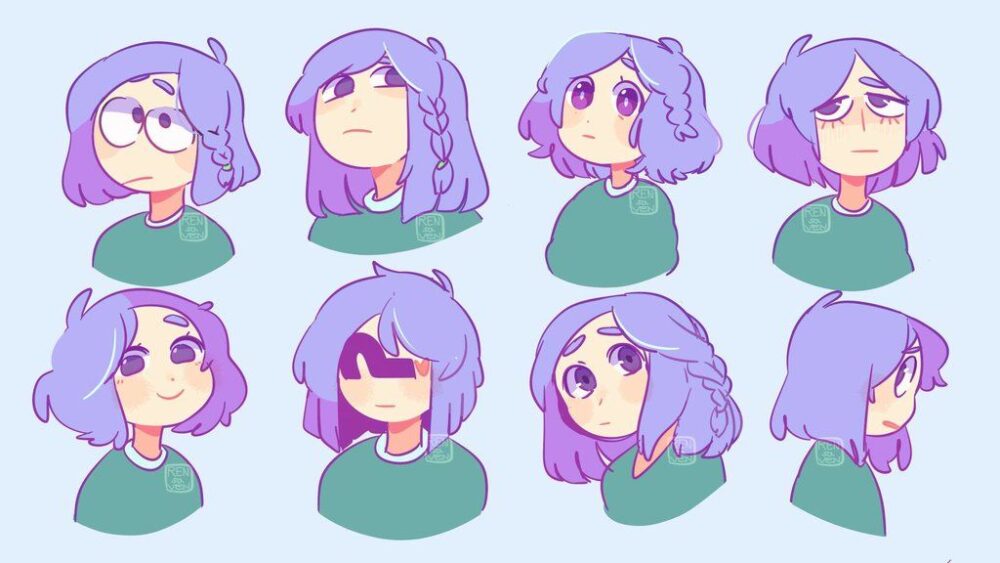
When you’re a comic book geek, the moment you see a particularly stunning page spread or an issue cover, you’ll recognize the artist.
That’s because all the big names in the industry have their own particular style. In other words, you’ll never confuse a cover done by Alex Maleev with a work of Alex Ross, Adam Hughes, or Dustin Nguyen.
Strive for this exact effect with your art. Don’t try to copy another artist’s style – that’ll just make your works more forgettable. Experiment with textures, materials (inks look different from oils or watercolors), and color. Keep doing it until you think, “I haven’t seen anything like this before”.
4. Consider Different Roles You Might Take On
Big projects (think most DC and Marvel titles) will have more than one artist working on the visuals of an issue. Here’s a brief overview of various roles you can try on:
- Penciler. It’s the person responsible only for the initial pencil sketches.
- Inker. They use the ink to add depth and dimension to the pencil sketch.
- Colorist. You guessed it – it’s the artist who applies color to the inked sketch.
- Letterer. They’re responsible for all the lettering – speech bubbles, sound effects, etc.
- Cover artist. These artists are invited to draw the main or variant cover for an issue.
While you’re at the beginning of your career path in the comic book industry, focus on all aspects of comic book art and develop a versatile skill set. But keep in mind: at some point, you might have to choose your specialization.
5. Make Sure Your Portfolio Is Outstanding
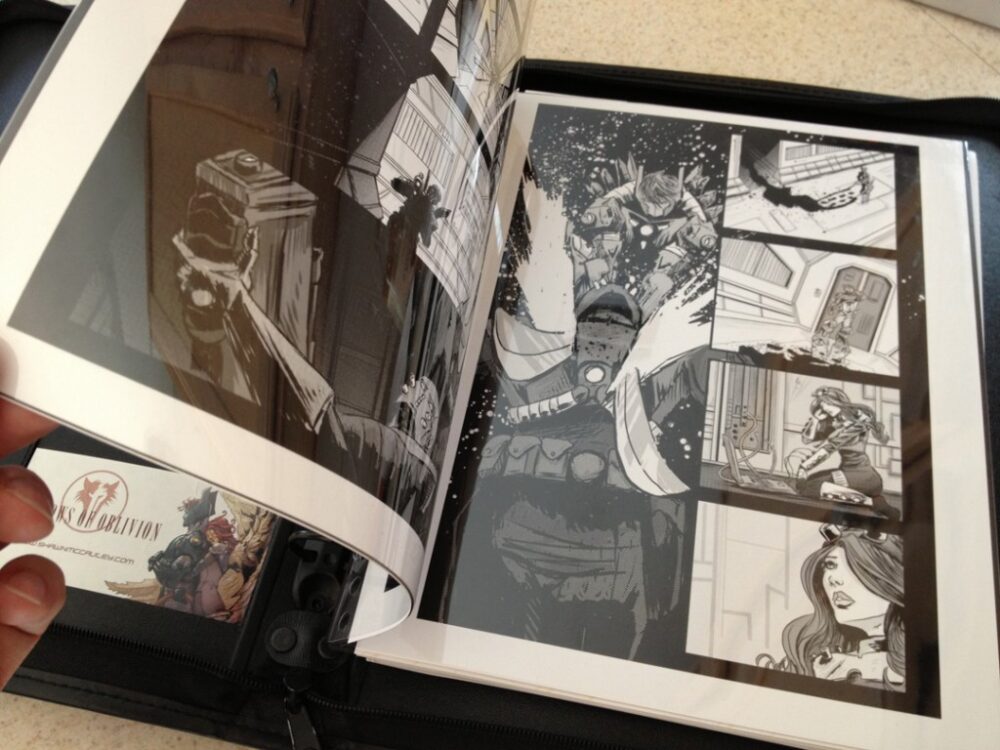
Your portfolio is what matters the most in this industry. And considering the cutthroat competition these days, it has to be not just good – it has to be breathtaking, one-of-a-kind, unforgettable.
Maintaining your portfolio online is also a way to promote yourself as an artist. Here are 6 platforms where your profile can help you get your name out there:
- ArtStation;
- Behance;
- DeviantArt;
- Tumblr;
- Instagram;
- Twitter.
Keep in mind: your portfolio isn’t a “done once” thing. You’ll have to maintain and update it. Plus, it doesn’t have to contain only paid gigs. You can post your own projects or webcomics.
6. Show It to a Professional
You won’t be able to learn without some constructive criticism. It’s only natural – all people have a hard time assessing their own weaknesses.
The best way to get feedback is, of course, to ask a professional for it. (It doesn’t necessarily have to be a big name in the industry.)
Just find a great artist’s profile online and reach out to them – they’ll enjoy trying on the role of an expert, too. Or, take your works to a comic book convention for an in-person conversation.
7. Diversify Your Income Sources
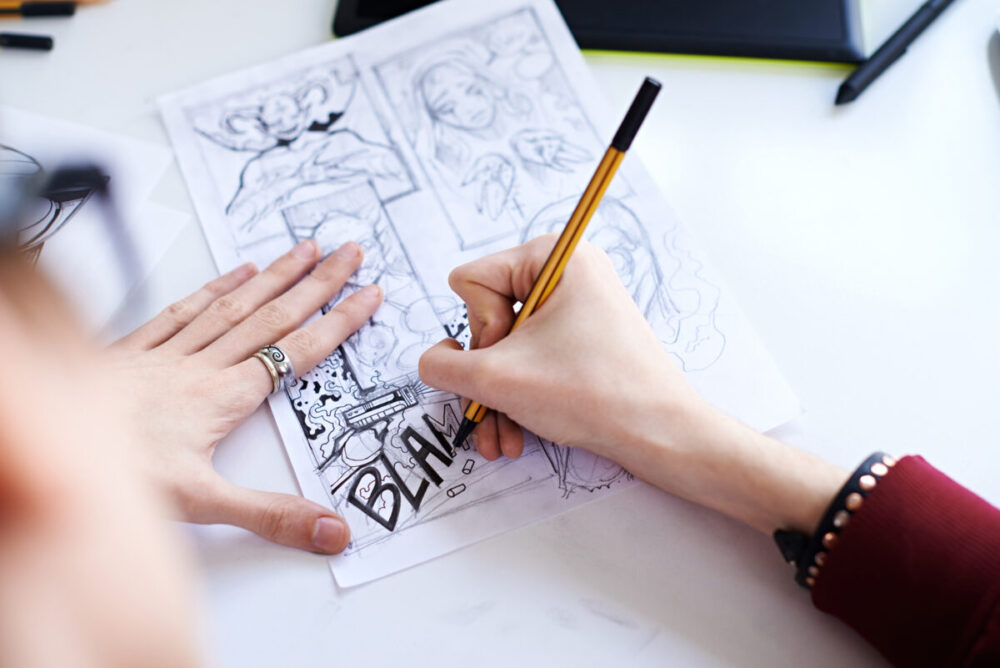
Let’s be clear: it’ll take a long while before you can secure a contract with the likes of DC or Marvel Comics. That’s because experience matters. But how do you get it then? (Without starving in the process, too.)
Here are a few ways for a beginning artist to make a buck and add experience to their resume:
- Selling prints;
- Doing commissioned art;
- Setting up a Patreon account;
- Working with smaller publishers and independent projects;
- Creating your own comic book or graphic novel and self-publishing it.
Final Piece of Advice: Do It for the Passion
Yes, the big names can be paid quite handsomely. But that shouldn’t be your main reason to get in on the game.
After all, it’s not an easy job. It comes with long hours and the cons of freelancing (managing your accounting and taxes, feast or famine cycles, etc.). It’s extremely demanding.
But if it’s something you’ve dreamt of since you were a kid, those downsides will be easily outweighed by the biggest advantage possible. You’ll be enjoying what you do for a living. You’ll love every moment of your work. Isn’t this the most rewarding thing in the world?








